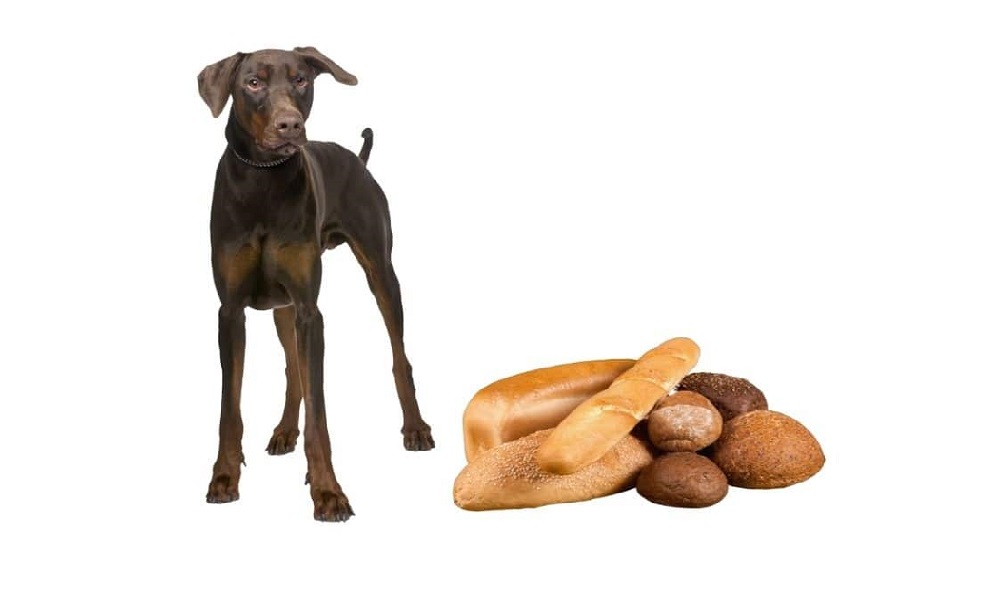Dogs can eat couscous in moderation. It’s a safe grain alternative when plain and properly cooked. Couscous, a staple grain in many households, provides a source of energy and is a change from the usual rice or potatoes.
Made from semolina wheat, couscous is not necessarily nutritious for dogs but can be a simple and quick-to-prepare addition to their diet.
Pet owners should serve couscous to dogs sparingly and ensure it is free from harmful additives like garlic, onions, or excessive spices. Serving small portions mixed with their regular food can make for an interesting mealtime variation.

What Is Couscous?
Couscous is a type of North African staple. It looks like grains, but it’s a pasta. It’s made from semolina wheat moisturized and rolled into tiny balls.
Later, these are steamed. Couscous has a mild flavor. This makes it perfect for soaking up delicious sauces from your dog’s food.
A Brief Introduction
Dogs often enjoy different types of food. Pet owners frequently ask if certain human foods are safe for their dogs. Couscous is one such food. It is a quick-cooking meal and offers versatility.
Nutritional Composition
Couscous is full of nutrients that can be part of a healthy diet:
| Nutrient | Benefit |
|---|---|
| Protein | Helps muscle growth and repairs |
| Fiber | Good for digestion |
| Vitamins | Supports overall health |
| Minerals | Needed for body functions |
Even though couscous offers these nutrients, portion control is key. Dogs need a balanced diet. Couscous should only be a small part of it. Let’s ensure our furry friends stay healthy and happy!
Is Couscous Safe For Dogs?
Couscous – a grain-like staple loved in many diets, but what about for our four-legged friends? Deciding whether to share this with your pup requires careful consideration. Let’s fetch the facts.
Potential Benefits For Dogs
- Protein Content: Couscous contains protein, aiding in muscle development.
- Fiber: It has fiber which supports a healthy digestive system.
- Vitamins and Minerals: Couscous offers nutrients such as B vitamins and selenium.
Considerations For Feeding Couscous To Dogs
| Consideration | Details |
|---|---|
| Allergies: | Check for gluten sensitivity as couscous is wheat-based. |
| Portion Control: | Keep servings small to avoid weight gain. |
| Plain Couscous: | Avoid seasonings or oils which can be harmful. |
Health Risks And Concerns
While couscous can be a tasty treat for dogs, certain health risks need attention. Be aware of possible allergic reactions, digestive issues, and the risk of choking. It’s crucial to introduce couscous in small amounts to watch for any adverse effects.
Allergic Reactions
Dogs, like humans, can have allergies. Couscous is wheat-based and contains gluten. Some dogs might be allergic to this component. Signs of an allergic reaction include itching, skin rashes, and gastrointestinal problems.
Digestive Issues
Couscous, being rich in carbohydrates, might be hard for some dogs to digest. Overfeeding can lead to obesity and diabetes. Serve in moderation and monitor your dog’s reaction. If your dog shows signs of discomfort, switch back to their regular diet.
Potential Choking Hazard
Couscous grains are small, and dogs might inhale them rather than chew. This can pose a choking hazard especially for small breeds or fast eaters. Always supervise your dog when trying new foods. Keep serving sizes small to reduce this risk.
Recommended Ways To Feed Couscous To Dogs
It’s important to know the best ways to feed couscous to your furry friend. Let’s explore some dog-friendly methods to cook and serve couscous.
Cooking Methods
To ensure safety and digestibility, cooking couscous correctly is key. Here are simple steps:
- Boil water or dog-safe broth for flavor.
- Add couscous and remove from heat.
- Let it stand covered for 5 minutes.
- Fluff with a fork before serving.
Remember, no spices or salt when preparing couscous for dogs.
Mixing With Dog-friendly Ingredients
Couscous tastes better with some mix-ins. Here’s how to make it a tasty treat:
| Ingredient | Benefits | Preparation |
|---|---|---|
| Lean meats | Protein boost | Cooked without oil |
| Vegetables | Vitamins and minerals | Steamed and chopped |
| Pumpkin | Fiber for digestion | Pureed and plain |
Mix these ingredients into the cooled couscous. Always introduce new foods gradually to see if your dog enjoys and tolerates them well.
How Much Couscous Can a Dog Eat?
One cup of dry couscous is equivalent to around 175 grams. For dogs, we recommend 10-15 grams of carbohydrates per kilogram of body weight daily.
This means that a 10kg dog could have up to 1.5 cups of couscous. Couscous is a good source of carbohydrates and protein, but it is relatively high in sodium. It also contains iron, niacin, and thiamine.
Can Dogs Eat Pearl Couscous?
Yes, dogs can eat pearl couscous. This type of couscous is made from durum wheat semolina and is cooked in the same way as regular couscous. It is a good source of protein and fiber for dogs, and it also contains vitamins and minerals.
Can Dogs Eat Moroccan Couscous?
Yes, dogs can eat Moroccan couscous. It is healthy, nutritious food for them. The couscous contains vitamins, minerals, and fiber that are good for your dog’s health.
Conclusion
The answer is yes, but only in moderation. Couscous is a type of pasta made from semolina flour. It originates from North Africa and is a staple in Moroccan cuisine.
Couscous is traditionally served with meat or vegetables stewed in a sauce. It can also be used in salads or as a stuffing for poultry. It’s also low in fat and calories, making it a healthy treat for your pup.
When feeding your dog couscous, make sure to cook it first and avoid adding any spices or sauces that may be harmful to them. Also, keep an eye on portion size as overeating can lead to weight gain and other health problems.